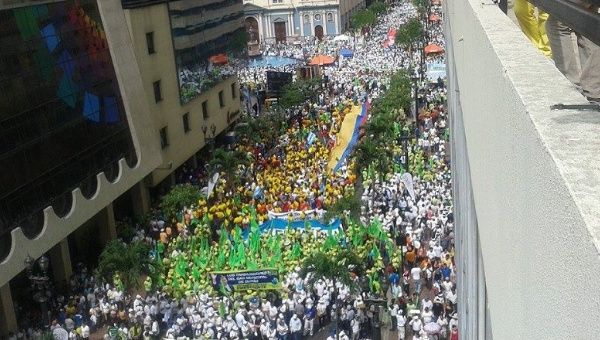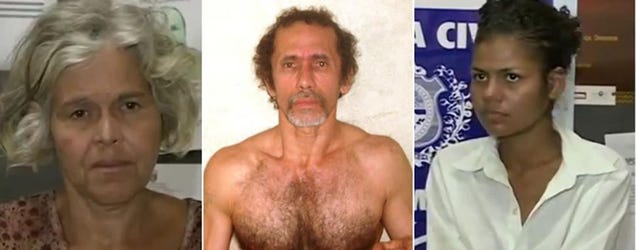By Delisa Morris
Impunity Watch Reporter, South America
BUENOS AIRES, Argentina — Earlier this week Argentina officials passed a bill that required every piece of Argentinian transportation to have a sign that says “Las Malvinas son Argentinas” or “the Falkand Islands are Argentine”.

A diplomatic source said Argentina’s choice to display the signs laying claim to the islands are “regrettable”.
The Argentine MP behind the initiative said it would “reflect our undeniable sovereignty” over the territory. The idea was introduced along with a number of other public transportation reforms which were passed unanimously on Thursday.
Senator Teresina Luna, the member of Congress who proposed the new regulation, wrote to the president of the parliament to say: “It is directed not only at the foreigner who comes here as a tourist or visits our country, but also at the citizens in general, and will serve to reinforce our history, our culture and our identity.”
President Cristina Fernandez’s government has often raised the issue of sovereignty over the islands known in Spanish as Las Malvinas.
Argentina lays claim on the islands, which it calls Las Malvinas, but Britain maintains that it ha sovereignty and has accused Argentina of ignoring the wishes of its residents who desire to remain British. Argentina lost a brief, bloody 1982 war with Britain over the South Atlantic archipelago and still claims the islands. Argentina claims Britain has illegally occupied the islands since 1833.
Recently, an angry mob erupted when Jeremy Clarkson was spotted driving through Argentina with a number plate H982 FKL which some claimed a reference to the Falklands War.
The Top Gear cast and crew had to flee the South American country after they were attacked by an angry mob, which Clarkson described as ‘the most terrifying thing I’ve ever been involved in.’
Last year, Falkland islanders took part in a referendum, voting by 1,513 to three to remain a British overseas territory. The island consists of about 3,000 residents.
UK Prime Minister David Cameron said at the time that the result “could not have sent a clearer message” but Argentine President Cristina Fernandez de Kirchner has maintained that the islanders’ wishes are not relevant.
The source added: “No sign can change the rights of the Falkland islanders to their own identity and we are determined to uphold that right.”
The measure was approved by the lower house of congress after getting approval from the Senate. It applies to all forms of public transportation whether rail, air, land or sea.
For more information, please see:
BBC News – Falkland Islands are Argentine signs ‘regrettable’ – 21 Nov. 2014
news.com.au – Falkland orders for Argentine transport – 21 Nov. 2014
Daily mail – Argentina passes law stating that all public transport and stations must display the words ‘The Falklands are Argentina’ – 20 Nov. 2014
SanLuisObispo.com – Public transport to say ‘The Falklands are Argentine’ – 20 Nov. 2014


